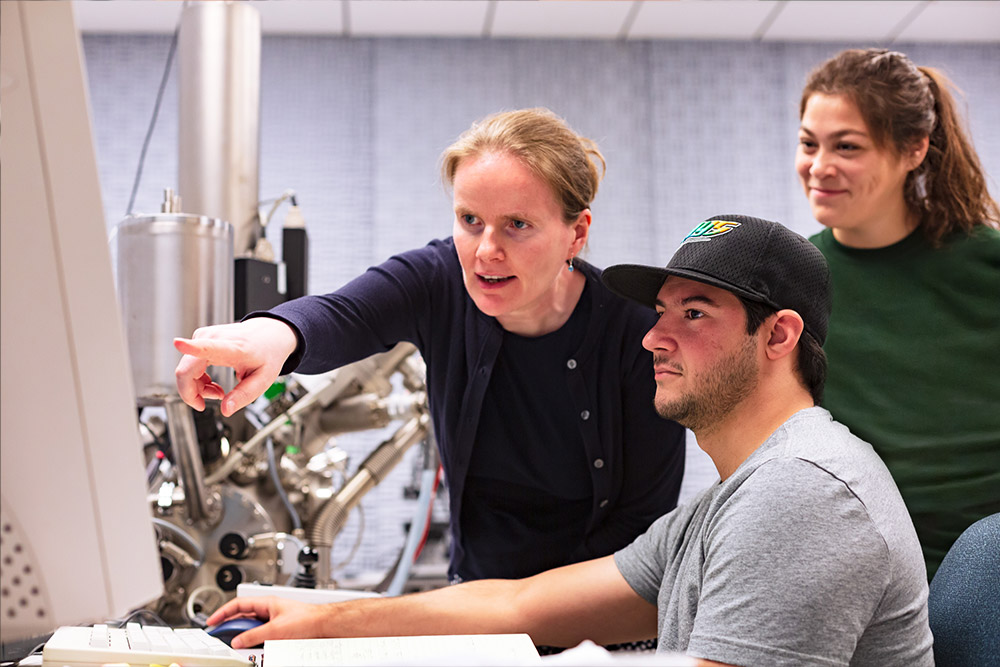
With support from the National Science Foundation (NSF), The University of Texas at Dallas is developing a program to expand support for minority post-baccalaureate students by encouraging them to continue their education and ultimately earn doctoral degrees.
Through the Bridge to the Doctorate program, an NSF grant of nearly $1.1 million will provide funding for 12 students from underrepresented minority groups to pursue their graduate education at UT Dallas while also supporting the creation of structures that will help those students — and other minority graduate students — succeed.
“Students who are from underrepresented groups typically have more difficulties — and higher dropout rates — because their undergraduate training may not have provided hands-on research opportunities and other avenues of support,” said Dr. Juan González, dean of graduate education. “We want to recruit 12 stars and make sure they finish their degrees and end well.”
Recruiting for the Bridge to the Doctorate program will be focused on students who participate in a minority recruitment program through the UT System Louis Stokes Alliance for Minority Participation.
“The purpose of the alliance has been to fund undergraduate student research experiences so that underrepresented students will become interested in higher degrees in STEM areas,” González said. “With the NSF grant, we’ll try to engage these same students and hopefully inspire them to attain a master’s degree or a PhD.
“We plan to take the best practices we develop and utilize them to benefit all of our graduate students. … We want to start to change the face of graduate education at UTD.”
Dr. Amy Walker, principal investigator on the Bridge to the Doctorate project at UT Dallas
“UTD has come a long way in terms of its diversity and inclusion, which is great, but our graduate student population has lagged a little bit behind.”
González, professor of molecular and cell biology and the Francis S. Johnson Chair for Graduate Education, is a co-investigator on the NSF grant. He said an important part of the project is the development of strong support structures.
“The NSF says the structures we’re creating should not only support these 12 students, but also support other graduate students to make them successful, such as providing career advice, helping them with dissertations and giving them tips on interacting with their professors,” he said.
Dr. Amy Walker, interim department head, professor of materials science and engineering, and principal investigator on the NSF project, said some graduate student structures will be new while others will improve existing programs.
For example, she said students’ families will have their own orientation programs so they can better understand the process.
“One of the most important components of being in school is your family support. And if your family doesn’t know what you’re going through and what is happening, they can’t support you in the best possible way. I think a lot of parents, aunts, uncles and grandparents would really like to know what graduate study involves and how it evolves over time,” Walker said.
Another structure the team will be implementing is an increased focus on mentoring — from peers, more experienced students, academic advisors and faculty members who are not involved in the students’ lab.
“We plan to take the best practices we develop and utilize them to benefit all of our graduate students — every single one — through new and different mentoring programs, new professional development programs, different ways of recruiting students and really changing a lot of things about the graduate education,” she said. “We want to start to change the face of graduate education at UTD.”